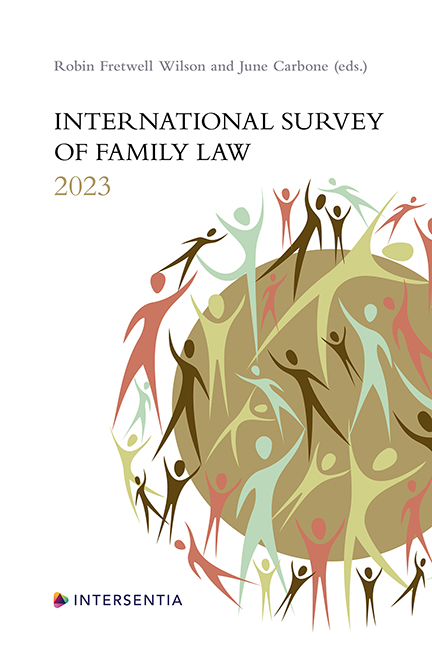Israel Islamic Law in the Jewish State: The Formation of an Israeli Shariʿa
Published online by Cambridge University Press: 03 April 2024
Summary
Résumé
Cet article présente les développements récents et passionnants du droit musulman de la famille dans l’État juif. Plus précisément, il explore les processus peu étudiés d’« israélisation du droit musulman », i.e. la convergence de facteurs légaux « externes » qui ont eu un impact sur l’évolution du droit musulman. L’analyse se concentre plus particulièrement sur deux formes « d’israélisation » : l’une concerne l’interprétation « civile » de la loi musulmane par les juges aux affaires familiales, l’autre est relative aux conséquences d’une réforme législative, introduite en 2001, qui a mis en place une compétence concurrente entre les tribunaux civils de la famille et les tribunaux de la charia pour la plupart des questions relatives au statut personnel des musulmans en Israël. L’étude est fondée sur la jurisprudence en matière de pension alimentaire pour l’épouse musulmane. Elle identifie la dynamique de deux processus parallèles, voire paradoxaux : d’une part, les tribunaux de la sharia ont eu tendance à introduire des réformes internes en faveur des femmes et à adopter des interprétations du droit musulman de la famille relativement libérales et favorables aux femmes au cours des deux dernières décennies; d’autre part, les tribunaux civils de la famille ont développé une jurisprudence conservatrice et patriarcale qui est systématiquement défavorable aux femmes musulmanes et à leur famille. Cette étude se termine par un aperçu de la manière dont le droit musulman pourrait évoluer au sein de l’État juif.
INTRODUCTION
Israeli family law is unique among the law of Western countries: it is patterned after the Ottoman millet system, which imbued communal-religious courts with jurisdiction in the personal status matters of their respective community members. The Israeli pluri-legal family law regime accords official recognition to 14 religious communities, including Jews, Muslims, Druze, Baha’i, and 10 different Christian denominations. Each recognised religious community possesses its own State-sanctioned tribunals and a separate set of legally binding religious codes. This State-administered religious court system co-exists alongside a parallel system of civil family courts, which have been vested with concurrent jurisdiction over the ancillary matrimonial matters of property distribution, wife maintenance, and child support and custody. Family law in the Jewish state is, thus, a hybrid of civil and religious legal elements, where the interplay between the sacred and the secular unfolds in many manifestations.
- Type
- Chapter
- Information
- International Survey of Family Law 2023 , pp. 259 - 280Publisher: IntersentiaPrint publication year: 2023



